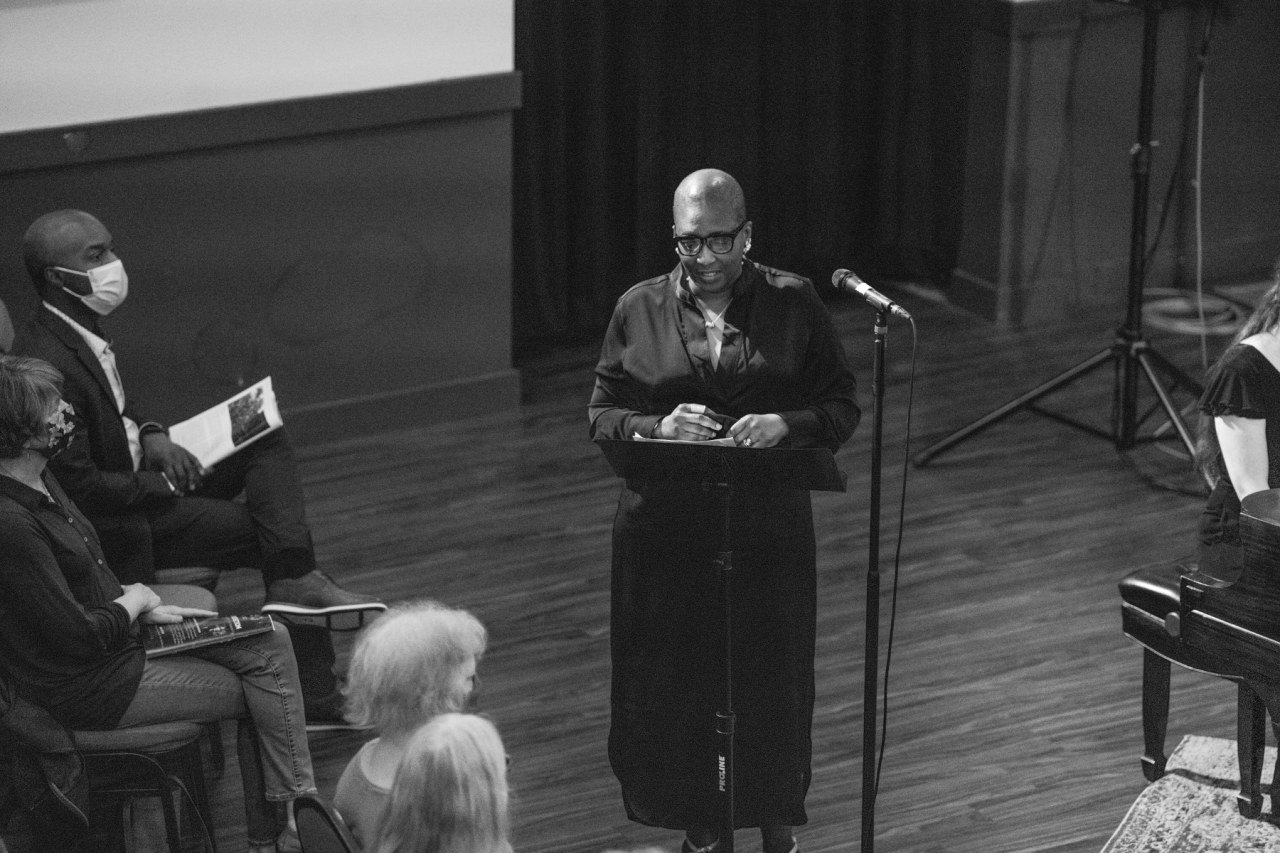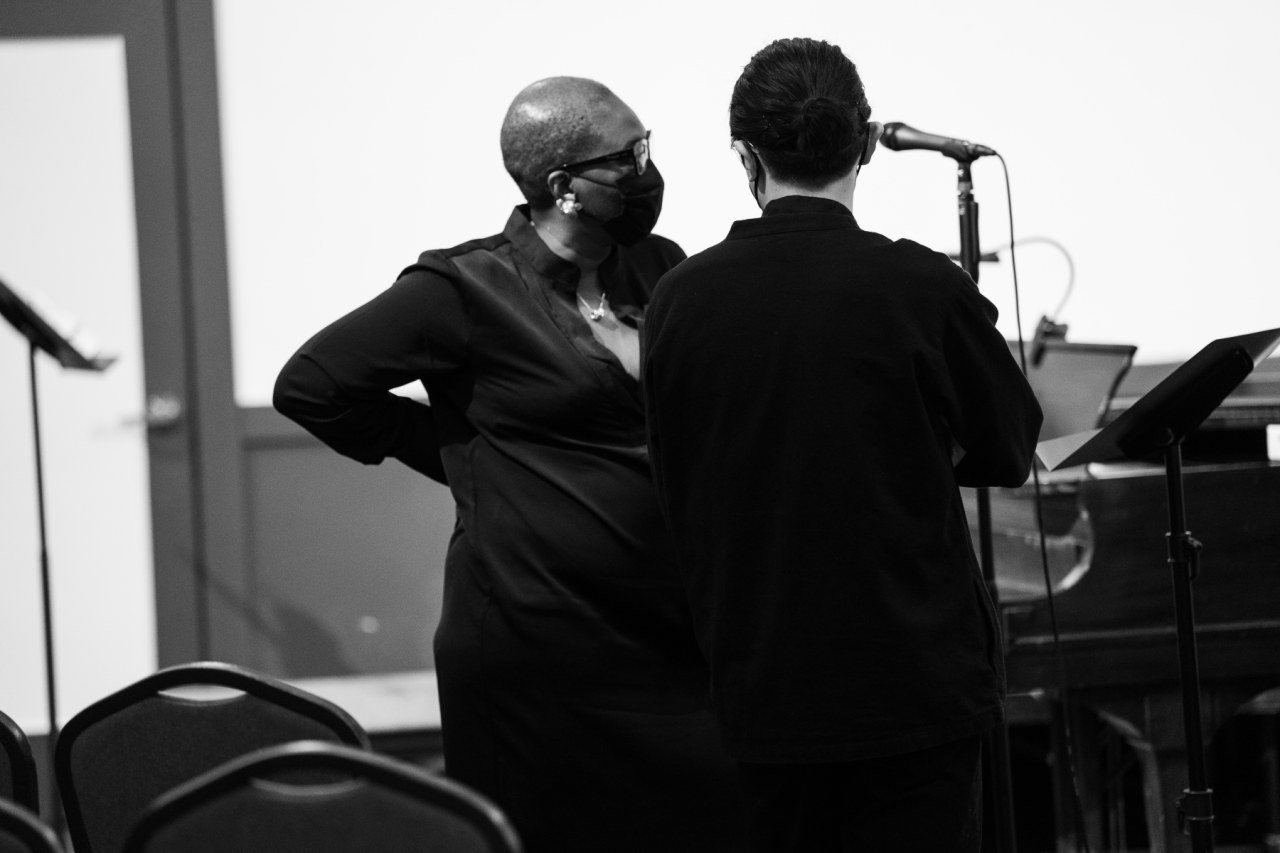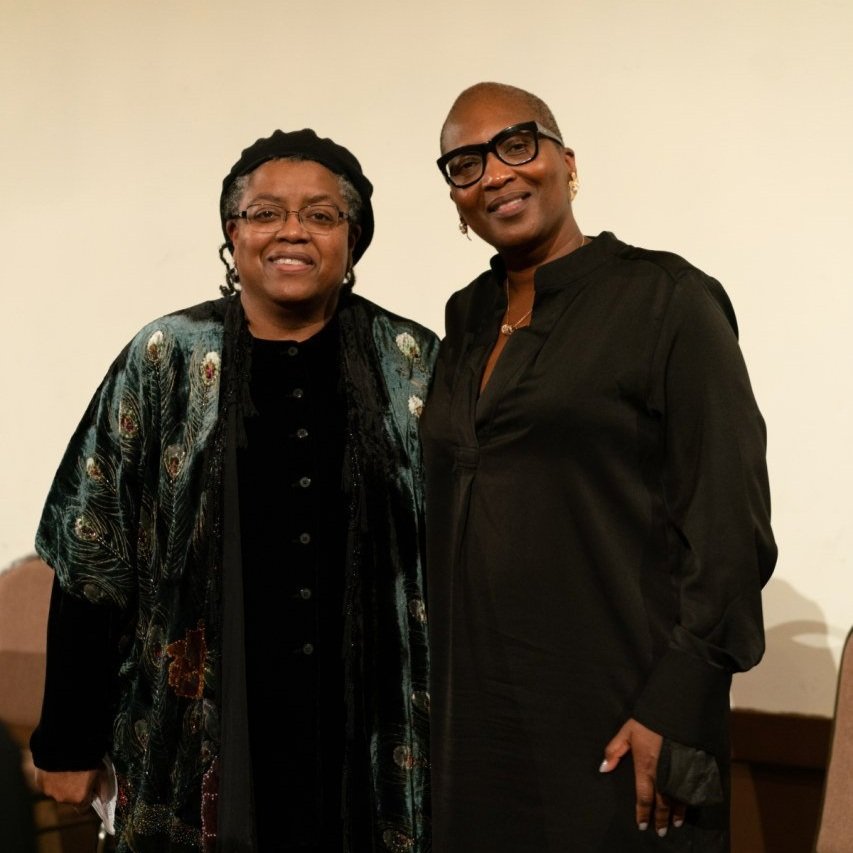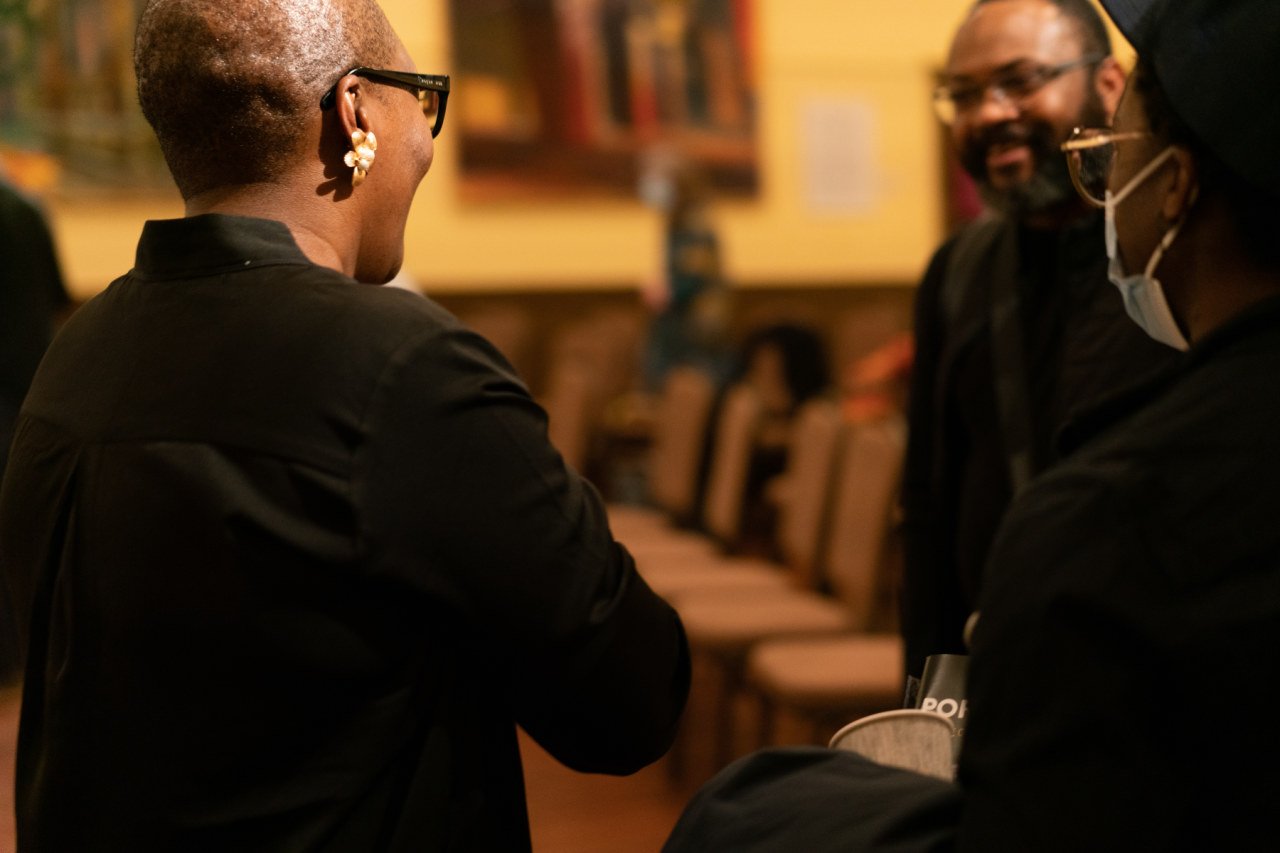Writer A. Mimi Sei Reflects on the Requiem
“Through it all, I remain hopeful that this and similar works will help America see and examine how the continued oppression of black and brown peoples shows up in her reflection. ”
A. Mimi Sei performs her work “Shout Out” at “Portland Protests” | March 2023 at Alberta House
A. Mimi Sei on a Resonance panel discussion with composer Kenji Bunch
On Sunday, May 21st, Resonance Ensemble unveils the premiere screening of Around the Requiem, a new film centering a conversation between artists and performers from An African American Requiem and moderated by Dr. S. Renee Mitchell. Filmed days before the premiere of this historic work, the film acts as a capstone to a series of materials inspired by An African American Requiem.
We celebrate the work’s one-year anniversary this month not only with the film premiere, but with additional reflections on those involved in its creation. You can read Damien Geter and Katherine FitzGibbon’s reflections here and filmmaker Kenny Hamlett’s here.
Today’s reflection comes from A. Mimi Sei—a writer, memoirist, and social justice advocate who authored the foreword to An African American Requiem’s score. Mimi has appeared with us this season as a guest poet for Portland Protests, and joins us again for the premiere film screening on Sunday as a panelist.
A. Mimi Sei | Reflecting on the Requiem
Mimi speaking with co-artistic advisor Shohei Kobayashi.
I knew when Damien called me into his classroom to hear the first concept of one of the movements that this work would be monumental. When he asked me to write the foreword, I paused but was honored. There’d been no other like it, so I did not know from where I could draw inspiration, but I hoped for divine direction. I did interview Damien and gleanings pointed to his respect for Ida B, Wells and James Baldwin. With that in mind, I wrote what spoke to my heart. The significance of the work moved me.
Mimi with singer and composer Judy A. Rose, who performed on both the Portland premiere and Washington DC performances of the Requiem.
I was also driven to do it justice, because of the significance of it, especially in these times. His calling to this arrangement is remarkably pertinent. We see the persistence of bigotry even as we are on our knees fighting this elusive enemy—COVID. Heavy shadows and difficult realities continue to overcast the light that is Black America.
Through it all, I remain hopeful that this and similar works will help America see and examine how the continued oppression of black and brown peoples shows up in her reflection. Racism and injustice tarnish the American tapestry, and this Requiem might just be one of the agents through which we begin to examine the stains, in an effort to eliminate them.
It honors many lost to injustice, taken so suddenly, some unaccounted for, and others completely forsaken. Damien remembers them. This Requiem holds such an important marker for us. It is no dirge; it is instead a clarion call for us to commit to continued activism, to stand up for the many we have lost, and to stand in the gap for those who continue to suffer at the hands of injustice.
Listen, experience it, and be a part of this light that illuminates a path to an appreciation for our shared humanity.
Mimi chats with singer DeReau K. Farrar after the premiere of her work at Portland Protests.
All photos in this post are by Rachel Hadiashar





